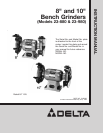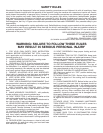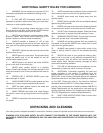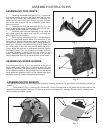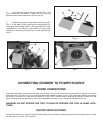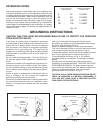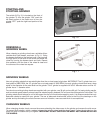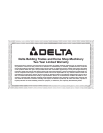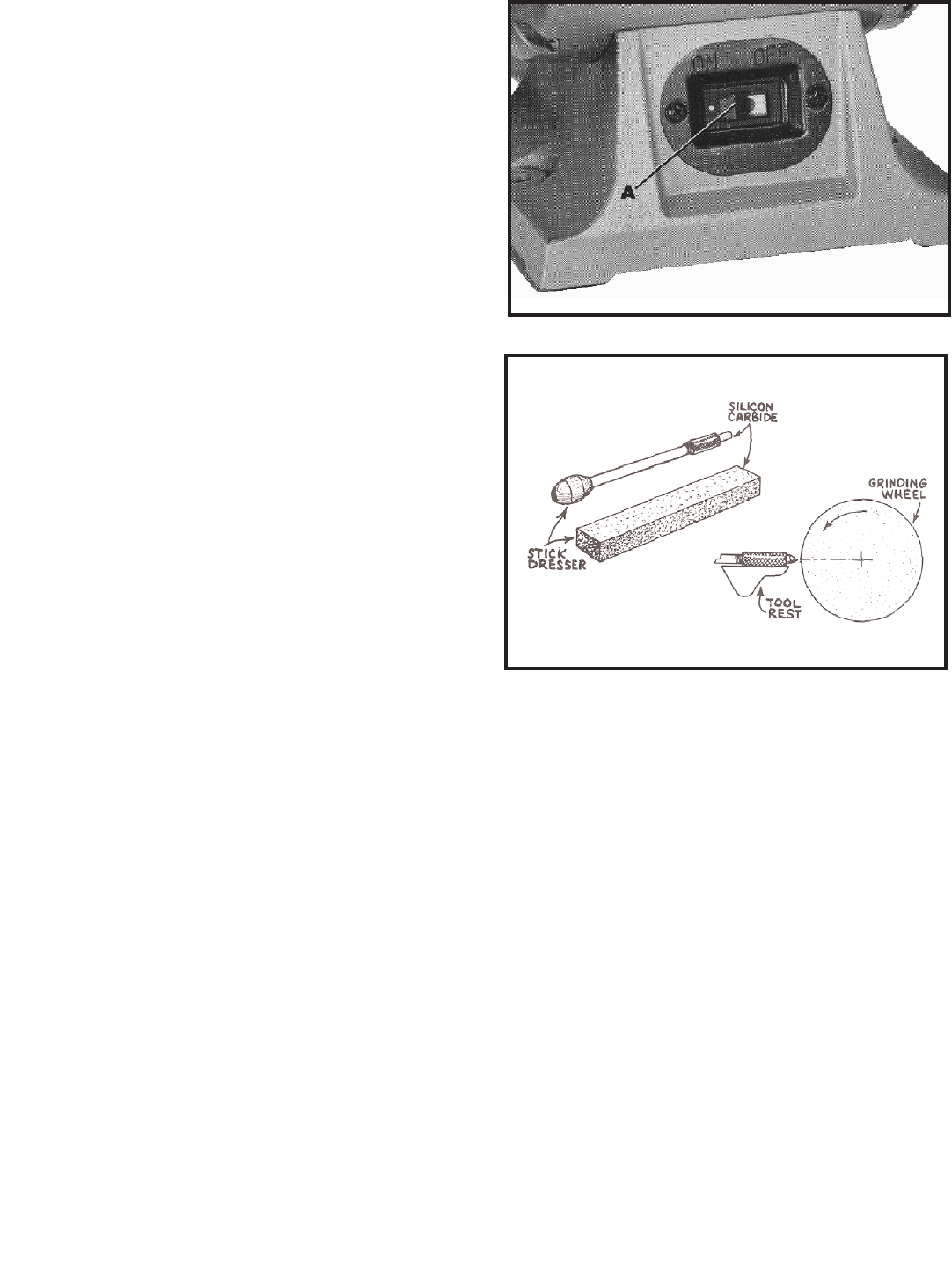
STARTING AND
STOPPING GRINDER
The switch (A) Fig. 10, is located on the front of
the grinder. To turn the grinder “ON” push the
left hand portion of the switch and to turn the
grinder “OFF” push the right hand portion of the
switch.
Fig. 10
Fig. 11
DRESSING A
GRINDING WHEEL
When dressing a grinding wheel use a suitable silicon
carbide stick type dresser, as shown in Fig. 11. Bring
the dresser forward on the tool rest until it just touches
the high point of the face of the wheel and dress the
wheel by moving the dresser back and forth. Repeat
this operation until the face of the wheel is clean and
the corners of the wheel are square.
GRINDING WHEELS
Use only grinding wheels that are rated higher than the no-load speed of grinders. IMPORTANT: The 8" grinder has a no-
load speed of 3600 RPM; the 10" grinder has a no-load speed of 1800 RPM. Use only grinding wheels that have a bore
equal to the diameter of the arbor shaft on the grinder. The 8" grinder is supplied with a 5/8" diameter arbor and the 10"
grinder has a 1" diameter arbor.
Two aluminum oxide grinding wheels are supplied with your grinder; one 36 grit and one 60 grit. For best grinding results,
and to maintain good balance, always keep the wheels properly dressed. Do not force the work against a cold wheel. The
grinding wheel should always be run at idle speed for one full minute before applying work. It is recommnended that only
balanced wheels be used with your grinder. The use of balanced wheels adds years to the life of the bearings on the
grinder and by eliminating the most common source of vibration, more accurate work is accomplished.
CHANGING WHEELS
When changing wheels, simply remove the screws attaching the side covers to the grinder and remove the side cover.
To prevent shaft rotation, place a wedge between the grinding wheel and the wheel guard. Facing the grinder, turn the
arbor nut down to loosen and up to tighten. IMPORTANT: DO NOT OVERTIGHTEN WHEEL NUTS WHEN INSTALLING
THE WHEELS.



